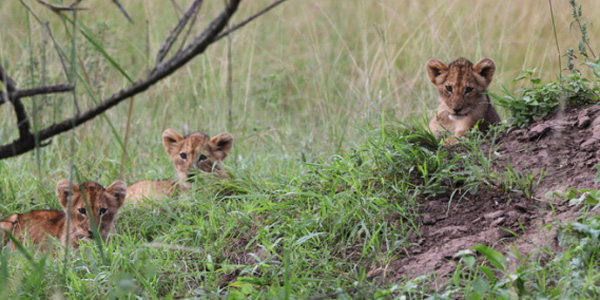25th May, 2016 09:35:00
The LION FAMILY in Akagera National Park has grown to 10 following the birth of three cubs, the first cubs to be born in the country in almost two decades.

The cubs belong to 11-year-old mother, Shema, according to a statement from wildlife park managers, African Parks. Shema is one the seven lions that were reintroduced to Akagera National Park from South Africa in June last year. Their father, Ntwari, is five years old, one of two males in the group from South Africa.
“Eleven-year-old lioness Shema has given birth to three cubs in Akagera estimated to be six weeks old,” Akagera management announced on their Twitter handle.
Sarah Hall, Akagera’s tourism and marketing manager, told the Associated Press, yesterday, that the birth of three cubs boosts Rwanda’s efforts to restore the country’s lion population, which was wiped out following the country’s 1994 Genocide against the Tusti.
It is believed that herders poisoned Rwanda’s last lions after the park was left unmanaged in the aftermath of the Genocide. Returning refugees took over much of the park, reducing its size by more than half.
The cubs at Akagera were spotted with their mother on Wednesday, according to park managers.
Ntwari, the dominant male in the Akagera group, has also been seen mating with two other lionesses, indicating that more cubs could be on the way, according to African Parks.
“We are aware that they do breed quite quickly, which is why we couldn’t bring in too many to start with,” she said.
There is no concern for now about inbreeding because the females have adequate “genetic diversity” and the males are unrelated, Hall told Associated Press.
African Parks cautions that lion cubs are especially vulnerable in their first few months because they can be attacked by predators and rely completely on their mother.
Seven lions, including two males, arrived in Rwanda from South Africa on June 30 last year. The females were donated by Beyond Phinda Private Game Reserve and the two males by Tembe Elephant Reserve and Ezemvelo KZN Wildlife protected area. Both game reserves are located in the South African province of KwaZulu-Natal.
The reintroduction of lions in Akagera National Park comes 15 years after the last one was seen in the park.
The endangered species have a lot of significance to Rwandan history, according to historians.
Credit: http://www.newtimes.co.rw/
6 Days, 5 Nights Travel Trip
This festive offer for EA residents only features a 5-night/6-day premium s...
15 Days, 14 Nights Travel Trip
Great choice, travelers! For our next adventure, we will be visiting the be...
15 Days, 14 Nights Travel Trip
"Welcome to Palakkad, the land of mountains, forests and rivers. This pictu...
6 Days, 5 Nights Travel Trip
Welcome to the stunning destination cities of Arusha, Ngorongoro Conservati...
Stay updated with our latest news!